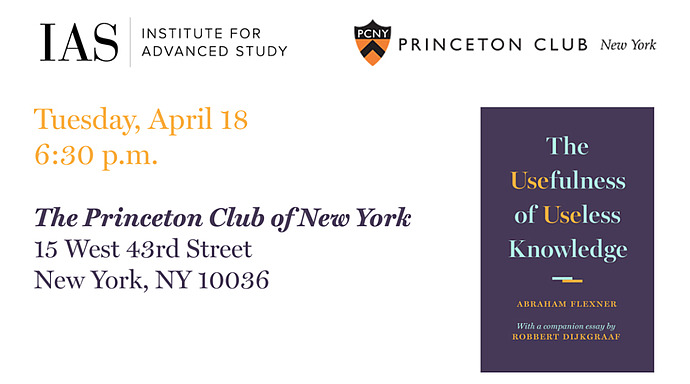
The Princeton Club of New York Presents Robbert Dijkgraaf
“The progress of our modern age, and of the world of tomorrow, depends not only on technical expertise, but also on unobstructed curiosity and the benefits—and pleasures—of traveling far upstream, against the current of practical considerations.” – Robbert Dijkgraaf
Join Robbert Dijkgraaf for a presentation on his short, yet provocative book about why “useless” science often leads to humanity’s greatest technological breakthroughs. The book, The Usefulness of Useless Knowledge, features Institute for Advanced Study founding Director Abraham Flexner’s classic essay of the same title, first published in Harper’s magazine in 1939, and includes a new companion essay by Dijkgraaf. Flexner, the man who helped bring Albert Einstein to the United States, describes a great paradox of scientific research. According to Flexner, the greatest scientific discoveries and technological breakthroughs arise from the work of scholars motivated solely by curiosity, without concern for applications. History offers countless examples. Quantum mechanics inadvertently led to the development of computer chips. Today’s GPS devices would be unthinkable without Einstein’s theory of relativity of 1915.
The Institute will provide transportation to and from the event for members of the Institute community and will be leaving Fuld Hall at 4 p.m. sharp. Space is limited.